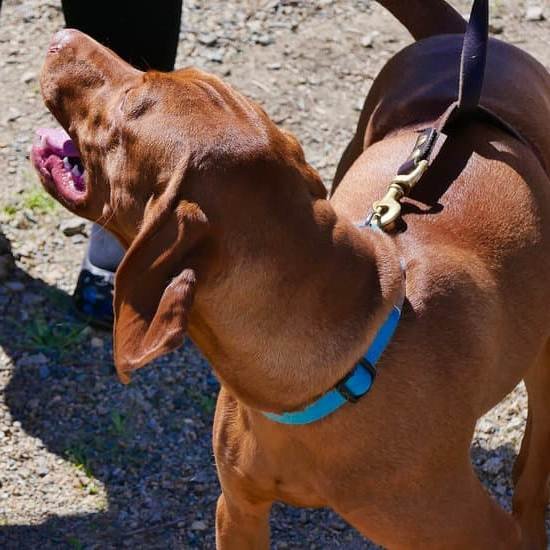Dogs bark for a variety of reasons, from excitement or happiness, to fear or aggression. However, barking can quickly become a problem if it’s uncontrolled, or if it’s directed at the wrong things.
Fortunately, there are ways to train your dog not to bark at everything. The first step is to determine why your dog is barking. Once you know the cause, you can start to address the issue.
If your dog is barking out of excitement or happiness, you can train them to stop by teaching them to “speak” or “quiet” on cue. Start by saying “speak” or “quiet” in a calm voice, and then rewarding your dog with a treat when they bark or stop barking. Once your dog is responding consistently, put them in a situation where they’re likely to bark (like when someone comes to the door), and give the cue to “speak” or “quiet.” If your dog doesn’t bark, reward them with a treat. If they do bark, wait until they stop barking and then give the cue to “speak” or “quiet” and reward them with a treat.
If your dog is barking out of fear or aggression, you’ll need to take a more hands-on approach. You’ll need to work on building your dog’s confidence and training them to respond to commands in a stressful situation. Start by working on basic obedience commands in a calm environment. Once your dog is responding consistently, slowly introduce them to situations that are likely to cause them stress or anxiety, such as people coming to the door, loud noises, or unfamiliar environments. When your dog is responding well in these situations, gradually increase the difficulty. always remember to reward your dog for their good behavior.
By following these steps, you can train your dog not to bark at everything. It will take time and patience, but it’s well worth it in the end.
How To Train A Dog Not To Bark At Noises
One of the most common problems dog owners face is their dog barking excessively. This can be extremely frustrating and can even lead to problems with the law if the barking is loud enough to disturb the neighbors. Fortunately, there are ways to train your dog not to bark at noises.
The first step is to determine why your dog is barking. There are many different reasons a dog might bark, including excitement, fear, boredom, and aggression. Once you have determined the reason for the barking, you can begin to address the problem.
If your dog is barking out of excitement, you will need to work on training him to calm down. You can do this by teaching him to sit or lie down and stay in place until you release him. Once he is calm, you can give him a treat or praise him.
If your dog is barking out of fear or aggression, you will need to work on obedience training. You will need to teach him to obey basic commands such as sit, stay, come, and down. Once he is obedient, you can begin to work on correcting the behavior that is causing him to be fearful or aggressive.
It is important to be consistent with your training and to be patient. It may take a while for your dog to learn not to bark at noises. However, with patience and persistence, you can train your dog to be a well-behaved and quiet pet.
How To Train Dog To Stop Barking At Door
How can I stop my dog from barking at the door?
There are a few things you can do to help stop your dog from barking at the door. One thing you can do is to put a stop to the behavior before it starts. If you see your dog starting to bark at the door, interrupt him with a loud noise or by clapping your hands. You can also try to divert his attention by giving him a toy or treats.
Another thing you can do is to train your dog to stop barking at the door. One way to do this is by teaching him to “speak” and “quiet” on cue. Start by teaching your dog to “speak” when he barks. Once he knows how to do this, put him in a situation where he is likely to bark, such as by the door. When he barks, say “speak” and give him a treat. Once he understands that he is getting a treat for barking, he will start to do this on cue.
Next, teach your dog to “quiet” when he barks. Once he knows how to do this, put him in a situation where he is likely to bark, such as by the door. When he barks, say “quiet” and give him a treat. Once he understands that he is getting a treat for barking, he will start to do this on cue.
How To Train A Dog Not To Bark On Walks
There are a few things you can do to help train your dog not to bark on walks. One of the most important things is to make sure your dog is getting enough exercise. If your dog is getting enough exercise, they will be less likely to bark out of boredom. You can also train your dog using positive reinforcement. When your dog does something good, such as not barking, make sure to reward them with a treat or a pat on the head. This will help reinforce the behavior you want your dog to exhibit. Finally, make sure to stay consistent with your training. If you slip up and let your dog bark once, don’t get discouraged. Just make sure to go back to the training and be consistent.
Can I Train My Dog To Stop Barking
?
There is no one-size-fits-all answer to this question, as the best way to train a dog to stop barking will vary depending on the individual dog’s personality and behavior. However, there are a few general tips that can help you train your dog to stop barking.
First, it is important to understand why your dog is barking. Is he barking out of excitement or fear? Is he trying to get your attention? Once you understand why your dog is barking, you can start to work on addressing the root of the problem.
If your dog is barking out of excitement or fear, you can start to work on training him to bark less by using positive reinforcement. For example, when your dog barks, you can reward him with a treat or a pat on the head. This will help him learn that barking does not always result in a positive outcome.
If your dog is barking to get your attention, you can start to train him to stop by ignoring him when he barks. This may be difficult in the beginning, but it is important to be consistent. Eventually, your dog will learn that barking does not result in getting your attention and will stop doing it.
It is important to be patient when training your dog to stop barking and to be consistent with your training methods. It may take some time for your dog to learn how to stop barking, but with patience and perseverance, you can get your dog to stop barking.

Welcome to the blog! I am a professional dog trainer and have been working with dogs for many years. In this blog, I will be discussing various topics related to dog training, including tips, tricks, and advice. I hope you find this information helpful and informative. Thanks for reading!





